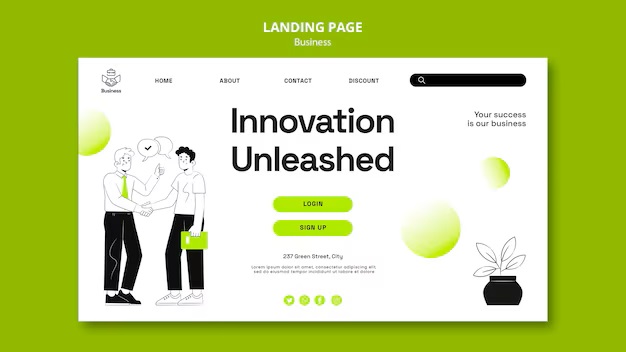In an era where technology permeates every facet of existence, a new approach has emerged that promises to transform how professionals access and utilize information. This paradigm shift is characterized by the seamless integration of advanced algorithms and intuitive interfaces, aimed at enhancing efficiency and accuracy in various fields. The fusion of artificial intelligence with traditional methods creates unprecedented opportunities for practitioners to navigate complex landscapes with agility.
The deployment of smart tools allows users not only to streamline workflows but also to harness powerful data analytics capabilities. As users engage with these sophisticated platforms, they gain insights that were previously difficult to uncover, enabling more informed decision-making. This evolution is essential for adapting to the constantly changing demands of a fast-paced environment.
Moreover, the commitment to user-centered design ensures that accessibility and practicality are at the forefront of developments. By focusing on the unique needs of different professionals, developers aim to create tailored solutions that enhance productivity while reducing the time spent on tedious tasks. As a result, individuals are empowered to devote more energy to strategic and creative endeavors, fostering innovation and growth.
Overview of Midpage’s Innovative Approach
This endeavor introduces a fresh perspective on traditional methodologies, promising to reshape how professionals engage with information. By leveraging cutting-edge technologies and intelligent algorithms, it aims to enhance efficiency and accessibility in content exploration.
Core features of this platform include:
- Advanced Algorithms: Utilizing machine learning to intelligently filter and deliver relevant data.
- User-Centric Design: Focusing on intuitive interfaces that facilitate seamless navigation for users of all backgrounds.
- Real-Time Updates: Ensuring access to the latest data and developments, allowing users to stay informed.
- Comprehensive Database: Integrating a vast array of resources, providing a one-stop solution for finding essential information.
By combining technological advancements with a user-friendly approach, this platform seeks to empower its users, enabling them to make more informed decisions quickly and effectively.
Key Features of Midpage Technology
This innovative platform encompasses a variety of functionalities designed to enhance user experience and streamline workflows. Each feature aims to address unique challenges, facilitating efficiency and precision in information handling.
One standout aspect is the advanced algorithms that power intelligent data extraction. These systems are capable of sifting through vast amounts of information, pinpointing relevant content with remarkable accuracy, which significantly reduces the time spent on document review and analysis.
Moreover, the intuitive interface ensures that users can navigate seamlessly through resources, allowing for quick access to essential materials. The search functionality is optimized to deliver pertinent results swiftly, catering to specific queries while minimizing irrelevant information.
Another crucial feature is the integration of machine learning capabilities, which continually refine the platform’s performance based on user interactions. As more users engage with the system, it becomes progressively adept at recognizing patterns and preferences, ultimately improving the quality of results provided.
Collaboration tools are also embedded within this platform, enabling seamless sharing of findings among team members. This feature fosters a collaborative environment, ensuring that all stakeholders remain informed and connected throughout their projects.
Lastly, robust security measures safeguard sensitive data and information, building trust and ensuring compliance with relevant regulations. With these innovations, the platform sets a new standard for efficiency and reliability in document handling and analysis.
Impact on Legal Professionals’ Workflows
Transformative advancements in technology have reshaped how practitioners approach their daily tasks, encouraging efficiency and precision. As automated solutions become integral in decision-making processes, workflows are streamlined, enabling a focus on higher-level strategic considerations rather than mundane tasks. This shift not only enhances productivity but also allows for a more satisfying engagement with complex legal matters.
Efficiency and Accuracy
By leveraging cutting-edge tools, professionals can access vast databases and analytical frameworks, significantly reducing time spent on routine inquiries. This newfound efficiency minimizes human error, ensuring that the data and insights provided are both accurate and reliable. As a result, practitioners can allocate more resources toward client engagement and case strategy, ultimately improving overall service delivery.
Collaboration and Knowledge Sharing
The implementation of advanced tools fosters an environment ripe for collaboration among team members. Shared platforms enable seamless communication and access to essential information, cultivating a culture of knowledge sharing. Such connectivity not only enhances team dynamics but also accelerates the ability to address client needs swiftly and effectively.
Case Studies Demonstrating Effectiveness
This section highlights a selection of real-world scenarios showcasing how advanced artificial intelligence tools have transformed various aspects of legal assistance. By examining these examples, one can gain insights into practical applications and the substantial benefits they offer to practitioners and their clients.
In one notable instance, a mid-sized law firm faced challenges in managing vast amounts of data related to ongoing cases. By implementing an innovative AI-driven platform, the firm streamlined its document review process, significantly reducing the time needed for discovery. As a result, attorneys could devote more attention to strategy and client interaction, ultimately leading to improved case outcomes and client satisfaction.
Another compelling example comes from a public interest organization focused on housing rights. Utilizing a sophisticated algorithm, the team was able to analyze patterns in eviction filings across different jurisdictions. This analysis empowered them to identify systemic issues and advocate for policy changes, demonstrating that technology can play a pivotal role in social justice efforts.
Furthermore, a large corporate entity benefited from predictive analytics, which enabled them to anticipate litigation risks based on historical data. By leveraging these insights, the organization was able to proactively address potential legal disputes, thus saving considerable resources and maintaining operational efficiency.
These case studies illustrate the transformative impact that cutting-edge technology can yield in practical situations. By adopting such advanced tools, professionals can enhance their workflows, achieve superior outcomes, and elevate their service delivery across diverse legal contexts.
Comparative Analysis with Traditional Research Methods
In today’s fast-paced environment, evaluating various approaches to information gathering is crucial for optimizing efficiency and accuracy. While conventional methodologies have long served professionals, advancements in technology present alternative solutions that promise to enhance productivity and outcomes. This section delves into a comparative examination of established practices versus innovative tools that facilitate information retrieval and analysis.
Efficiency and Speed
Traditional methodologies often rely on manual processes, requiring significant time to sift through volumes of documents and resources. This labor-intensive nature can lead to delays and inefficiencies. Conversely, modern tools leverage algorithms and automation, enabling swift access to relevant information. As a result, users can obtain insights and make decisions at an accelerated pace, reflecting the urgent demands of contemporary operations.
Accuracy and Reliability
Established approaches can sometimes introduce inconsistencies and errors due to human oversight. In contrast, advanced systems utilize extensive databases and artificial intelligence, minimizing the potential for mistakes and enhancing reliability. Users can trust that the information obtained through innovative methods is comprehensive and pertinent, ultimately leading to better-informed decisions and outcomes.
Future Prospects and Industry Trends
The landscape of assistance solutions is rapidly evolving, driven by advancements in technology and shifting consumer expectations. As innovative tools continue to emerge, professionals in various fields will likely experience significant transformations in their methodologies and workflows. This section explores emerging opportunities and anticipated developments that are set to shape this dynamic domain.
Automation and Efficiency are expected to play critical roles in enhancing productivity. As cutting-edge algorithms and artificial intelligence become increasingly sophisticated, routine tasks can be automated, allowing experts to redirect their focus towards complex decision-making processes. This shift not only optimizes workflows but also opens up new possibilities for collaboration among diverse teams.
Data-Driven Insights will significantly influence strategic planning. With vast amounts of information becoming readily available, professionals can leverage analytics to make informed choices. Embracing this trend enables organizations to adapt more quickly to changes in their environments, ultimately leading to better outcomes.
Personalization is another crucial aspect to consider. As users become more accustomed to tailored experiences, services that prioritize individual needs and preferences will likely gain traction. This evolution will challenge providers to develop highly customizable solutions that cater to specific client requirements.
In conclusion, the horizon looks promising for advancements in this sector. By embracing technological innovations and addressing the evolving needs of users, stakeholders can position themselves at the forefront of this transformative era.
Q&A: Midpage the new genai legal research startup
What is Midpage and how does it differ from traditional legal research tools?
Midpage is a next-generation AI-driven legal research startup that utilizes advanced algorithms and machine learning to streamline the research process for legal professionals. Unlike traditional legal research tools that often require users to sift through large volumes of text and manually compile relevant information, Midpage leverages natural language processing to provide precise, context-aware results. This allows users to quickly find pertinent case law, statutes, and legal precedents, ultimately saving time and improving the quality of legal arguments.
Who can benefit from using Midpage, and what specific features does it offer for legal practitioners?
Midpage is designed for a broad range of users within the legal profession, including attorneys, paralegals, and law students. Its features include an intuitive search engine that understands legal terminology, real-time updates on case law, and the ability to generate comprehensive reports tailored to specific legal arguments. Additionally, Midpage offers collaborative tools that facilitate teamwork among legal professionals, enabling them to share insights and findings seamlessly, which boosts productivity.
What are the advantages of using AI technology in legal research?
The integration of AI technology in legal research offers several key advantages. Firstly, it significantly reduces the time required to conduct thorough research, allowing legal professionals to focus more on strategizing cases and less on manual search tasks. AI algorithms can analyze vast amounts of data quickly, improving the accuracy of search results and identifying relevant information that a human researcher may overlook. Moreover, AI can continuously learn from user interactions to enhance its performance over time, ensuring that it adapts to the unique needs of its users.
How does Midpage ensure the accuracy and reliability of the legal information it provides?
Midpage employs a combination of rigorous data sourcing and continuous algorithmic updates to ensure the accuracy and reliability of its legal information. The platform aggregates data from authoritative legal databases, scholarly articles, and historical case law. Furthermore, it incorporates user feedback to refine its algorithms, thereby enhancing the quality of the search results. By prioritizing established and peer-reviewed sources, Midpage ensures that users receive dependable information crucial for legal decision-making.
Is there a trial period or subscription model for using Midpage?
Yes, Midpage offers a flexible subscription model tailored to the needs of its users. There is typically a free trial period that allows potential customers to explore the platform’s features and gauge its effectiveness in meeting their legal research needs before committing to a subscription. The subscription plans may vary based on user role—individual practitioners, firms, or academic institutions—with options that provide different levels of access and support. Customers can choose the plan that best fits their research requirements and budget.
What advancements have artificial lawyers brought to the legal tech landscape in 2024?
In 2024, artificial lawyers have significantly advanced the legal tech landscape by introducing AI-powered legal research tools, such as the GenAI-powered legal research tool. These tools help litigators perform in-depth case law research more efficiently, allowing them to analyze legal opinions in the US with greater accuracy. By leveraging generative AI, these platforms not only streamline workflows but also enhance user experience for legal professionals seeking to draft legal documents. The focus by legal tech companies on generative AI applications has led to improved functionality in legal research and drafting processes, making it easier for lawyers to navigate complex legal issues.
How do generative AI legal research tools assist litigators in their practice?
Generative AI legal research tools assist litigators by providing a robust platform that helps them perform in-depth case law research quickly and effectively. For instance, the legal research tool that helps litigators analyze various legal issues can break down complex cases into manageable sub-issues. This capability enables users to read excerpts of cases more efficiently, leading to faster preparation of legal arguments. Companies like MidpageAI and Otto Zastrow have launched products that focus on enhancing legal workflows, ensuring that legal professionals can draft and manage contracts with improved accuracy. By incorporating AI-generated annotations and other features, these tools transform traditional legal research into a streamlined process.
How have legal tech companies improved their platforms to assist litigators in 2023?
In 2023, legal tech companies have launched new tools that help litigators perform more efficiently in their research and case preparation. One notable example is the AL TV legal research platform, showcased during this week’s product walk. This platform utilizes the application of GenAI to enhance document analysis and knowledge management, allowing lawyers to read a case and access relevant legal opinions in the US, which are largely free to obtain. James Curbow, a key figure in the development of these tools, noted that the early focus by legal tech companies on ‘chunking’ legal information has streamlined workflows and user experience, making it easier for law firms and legal professionals to manage complex research issues.
What key developments in LegalTech were highlighted during the recent AL TV product walk?
During the recent AL TV product walk, several key developments in LegalTech were showcased, emphasizing advancements in legal technology aimed at improving user experience. The founder and CEO spoke about how their new AI legal assistant integrates with various platforms, including LinkedIn, to facilitate easier access to legal opinions in the US, which are largely based on proprietary algorithms. Additionally, the discussion touched on the importance of privacy policy compliance, particularly concerning the handling of sensitive legal data. The artificial lawyer also spoke to the challenges of managing research case law, noting that the early focus by legal tech companies has been on streamlining workflows and reducing the “messy compilation” of legal documents. James Curbow, a prominent figure in the industry, believes Midpage has made significant strides in areas where user experience can be enhanced. He also highlighted that when it came to contract management and drafting within legal frameworks, innovations in grid structures and the effective use of cookies to provide personalized services are crucial for future growth in the sector.
What innovations in LegalTech have been introduced to enhance user experience in recent developments?
Recent innovations in LegalTech have focused significantly on enhancing user experience, particularly in how legal opinions are accessed and analyzed. The founder and CEO of a leading legal tech company spoke about a newly launched platform that utilizes large language models (LLMs) to streamline the process of retrieving and interpreting legal opinions in the US, which are largely based on standardized formats. The lawyer also spoke to the founder about the importance of improving our services through better integration of user feedback. He noted that when it came to user experience, there are specific areas in which he believes improvements can be made, such as navigation and information retrieval. This discussion also highlighted that the early focus of legal tech was primarily on document management, but now the industry is shifting toward more interactive solutions that provide real-time insights. Additionally, considerations regarding cookie policy have become essential to ensure user privacy and compliance while offering tailored experiences, demonstrating a holistic approach to developing innovative legal technology solutions that truly cater to user needs.
What insights were shared during the discussion with the founder and CEO regarding the new LegalTech platform?
During a recent discussion, the founder and CEO shared valuable insights about their newly launched LegalTech platform designed to enhance legal research. The platform focuses on improving user experience – areas that are crucial for legal professionals in the US – which are largely characterized by complex regulatory requirements and vast amounts of legal information. The lawyer also spoke to the founder about how this innovation came to legal opinions, emphasizing the platform’s ability to provide more accessible and relevant legal insights. The integration of advanced filtering options and intuitive navigation features shows us how technology can streamline the research process. This innovation is a response to the growing demand for efficient tools in the legal industry, ultimately making it easier for lawyers to find and utilize legal opinions effectively.
What key features were highlighted by the founder and CEO during the launch of the new LegalTech platform?
During the launch of the new LegalTech platform, the founder and CEO spoke to the audience about several key features designed to enhance legal research and practice. One significant aspect is the platform’s ability to provide users with intuitive search functionalities that streamline access to essential legal documents and case law. The lawyer also spoke to the founder about the integration of real-time collaboration tools, which facilitate communication among legal teams. This feature is particularly useful in a fast-paced legal environment where timely decision-making is critical. Additionally, the platform supports advanced analytics capabilities, allowing users to gain insights into trends and outcomes related to specific legal issues, i.e., predicting case success based on historical data. Overall, these innovations aim to empower legal professionals by improving their efficiency and effectiveness in navigating complex legal landscapes, reinforcing the growing importance of technology in the legal field, as emphasized by the #legaltech movement.








